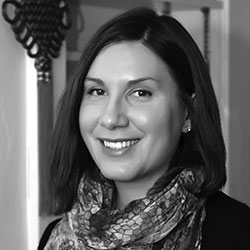News
Q&A with Fitbit CFO Bill Zerella
October 15, 2015
Bill Zerella (B.S. '78, pictured above, second from right) is chief financial officer (CFO) at Fitbit, a company known for fashionable wristbands that track human steps, calories, heart rates, and more. He talked to The Box about his education, career risks, and advice for aspiring business leaders.
How did your education prepare you for the role of CFO?
NYIT gave me a strong understanding of accounting, which is just as important today as it was during my student days. Any CFO needs to know how to read financial statements. After NYIT, I went to NYU's Stern School of Business for my M.B.A. and learned more about finance: doing financial analysis, developing business models, and raising money. You must be able to balance the accounting and finance sides of the job.
What have you learned from your career experiences working for a variety of companies?
Positioning companies for the public market is hard to do. In the past 10 years or so, I've focused on later-stage companies trying to make the next step to competitiveness and liquidity. Three of the last four companies I worked for went public, including Fitbit, Vocera Communications, and Infinera Corporation. The fourth, Force10 Networks, was sold to Dell just before launching an IPO roadshow.
How has taking risks paid off in your career?
Every position I've taken has entailed some level of risk, which is the case for any career move The question that needs to be answered is where one wants to be on the risk/reward continuum. In my case, after building a solid foundation in more established businesses, I moved to Silicon Valley, where I did a number of early stage start-ups. At that point, I was willing to take on higher risk, with the promise of high rewards. Although some of those ventures were not that successful, they did help me build my fundraising experience, which served me well when I later joined more mature businesses that wanted to get to the next level.
Did you consider Fitbit's CFO position to be a risk, too?
Yes, actually. When I joined Fitbit in 2014, the company had recalled its new flagship product. That certainly introduced a previously unforeseen level of risk. Ultimately, I had to make the judgement call as to whether the company could power through the crisis, finance the cost of the recall, which was significant, and come out on the other side. What ultimately swayed me was the power of the Fitbit brand and how passionate so many Fitbit users are.
What's your advice to current students who aspire to be business leaders?
Diversity of experience is important. Early in your career it's always beneficial to be at large companies where you'll find mentors and see how the business works. If you decide to be more entrepreneurial down the line, then you have context for how a business should be run.
For more insights from Zerella, read the story "Wearable Technologies" in the fall 2015 issue of NYIT Magazine.




